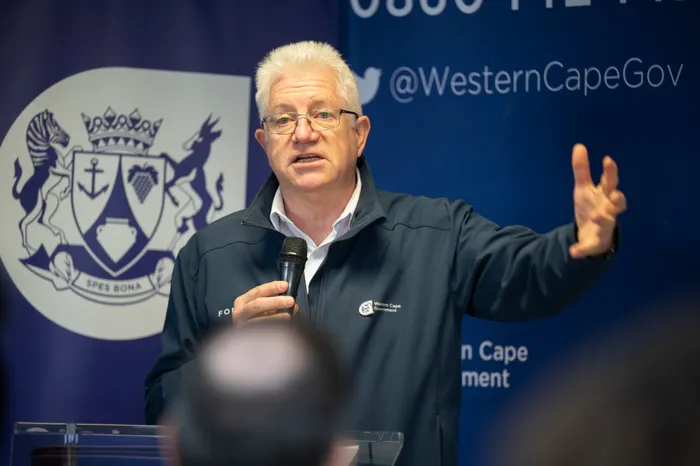Western Cape Premier welcomes 2025 budget compromises amid financial concerns

Western Cape Premier Alan Winde discuss the impact of the national Budget on the Western Cape.
Image: Armand Hough/Independent Newspapers
The Western Cape Government has cautiously welcomed the 2025 national budget, highlighting relief over the avoidance of a VAT hike but expressing concern over ongoing fiscal pressures that threaten essential services.
Premier Alan Winde described the budget process as “difficult and contentious” but acknowledged that key compromises had been made to shield struggling South Africans from further financial strain.
“We are relieved that key compromises have been made and that already over-burdened citizens will be spared from the punishing VAT hike proposed in the previous two budget frameworks,” said Winde.
“Our province and country need a budget that fast-tracks economic reforms, cuts wasteful expenditure, and reprioritises spending towards economic growth and job creation.”
The Western Cape’s own provincial budget is expected to be tabled in the first week of June. Finance MEC Deidré Baartman urged municipalities to meet the legislative deadline for adopting their budgets by the end of June to ensure continued service delivery.
“We also urge all municipalities in the province to table and adopt their budgets by the end of June, in line with legislative timelines, and to ensure that service delivery continues to reach our communities uninterrupted,” she said.
Despite the additional allocations for education and health, which will only take effect later this year, Winde warned that provinces remain under financial pressure.
“We remain concerned about the weakening fiscal environment. This is why we will continue to push for and implement economic policies that drive breakout economic growth,” he said.
Ongoing budget cuts, a result of the national fiscal crisis, have constrained the Western Cape’s ability to maintain high service standards. The province’s population has grown by nearly 20% since 2015, placing added strain on services.
Wind criticised the current Provincial Equitable Share formula for failing to adequately consider population growth and economic performance in fast-growing provinces such as the Western Cape, Gauteng, and KwaZulu-Natal.
“The majority of provincial budget funding comes from national government, thus, not increasing provincial envelopes in real terms has a direct impact on service delivery, such as health, education, and social development,” Winde said.
IOL News
Get your news on the go, click here to join the IOL News WhatsApp channel.
Related Topics:
